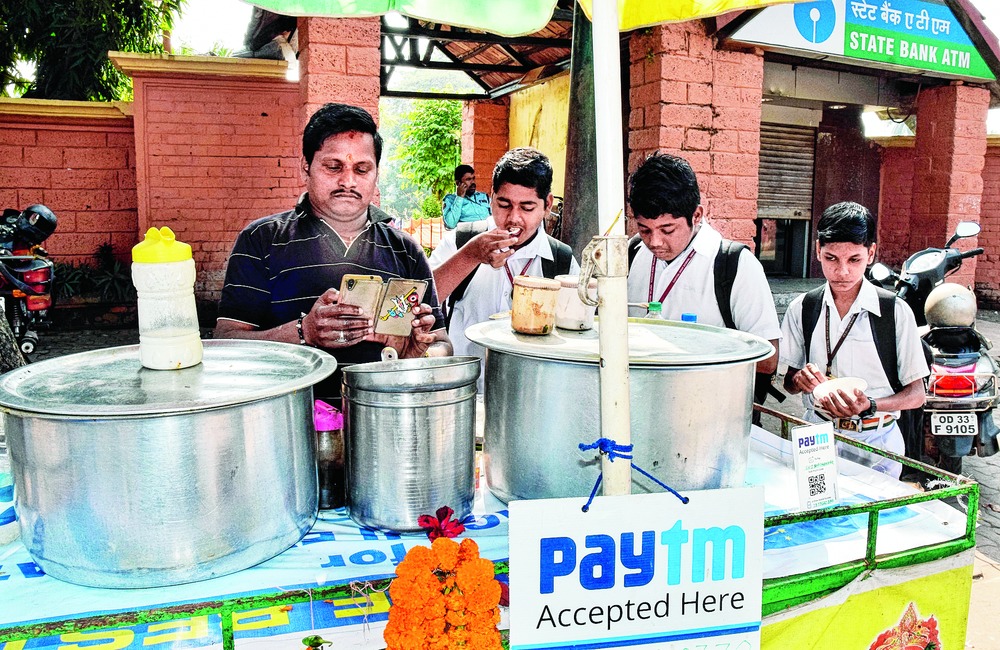
Picture by Sanjib Mukherjee
Bhubaneswar, Nov. 19: Many vendors here have switched over to cashless transactions to fight the present currency crisis triggered by the Centre's decision to scrap Rs 500 and Rs 1,000 notes.
Thirty-two-year old Happy Patra from Berhampur, who runs a teashop in Bhubaneswar, has adopted an e-wallet to get dues from his customers.
Talking to The Telegraph, Happy said he was receiving a minimum amount of Rs 5 through his online wallet.
"The demonetisation of the higher denomination notes has triggered a severe cash crunch in the city. Many have opted for the same online wallet system, so did I. It is convenient for us as well as for the customers. They can pay by scanning the code or entering my number in the smart phone application," said Happy.
Other small vendors in the city, such as gupchup, dahi vada and aloodum sellers have also adopted similar methods of receiving payments. Shivasankar Patra, 30, from Khurda, who sells dahi bada aloodum on a cart at Satya Nagar, also transacts through an e-wallet.
"I was told that the system was free and I just needed to generate a code, scanning which my customers could make the payments. The customers pay through their e-wallet and debit the cash into my number, following which I transfer the cash into my bank account. I get about Rs 500 in my e-wallet every day," said Patra.
Many people have also supported this digital transaction method. "The new Rs 2,000 note is difficult to exchange at small outlets. At this point of time, the e-wallet system comes as a relief," said Damana resident Sanat Kumar.
Big food chains, eat-outs and groceries have chosen to provide another option of debit or credit card payments from a minimum of Rs 100. "Making payments through debit or credit cards needs an additional tax as many were reluctant to adopt the method for making smaller payments like Rs 100 or so," said Prakash Hati, a fast food chain caretaker.
"However at present, people do not have enough cash at hand. This situation forces them to use their debit or credit cards. They do not care about the additional tax being charged," said Hati.
A private tutor, Ganesh Acharya, 29, said things were getting difficult for him after the demonetisation move. "I was forced to use my debit card for making payments. But, this means extra charges. When I checked my balance recently, I saw that I had been charged an additional Rs 300 in the process," said Acharya.










